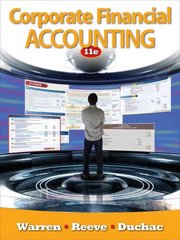Question
Teaching Mathematical Modeling in Singapore Schools Ang Keng Cheng National Institute of Education Introduction The purpose of this paper is to examine the possibility of
Teaching Mathematical Modeling
in Singapore Schools
Ang Keng Cheng
National Institute of Education
Introduction
The purpose of this paper is to examine the possibility of introducing the teaching of mathematical modelling to the secondary school curriculum in Singapore. As well, the benefits of teaching and learning mathematical modelling are discussed. Examples to illustrate the process of mathematical modelling using only basic mathematical ideas and concepts are presented. These serve to illustrate that school mathematics can be used to provide experiences of the process of mathematical modelling in the classroom. Some implications on the teaching and learning of mathematics using such an approach are examined and discussed.
One of the primary aims of mathematics education for secondary schools in Singapore is to enable pupils to acquire the necessary mathematical knowledge and skills and to develop thinking processes so as to apply them in mathematical situations in real life. In fact, the mathematics curriculum in Singapore is designed around a framework with Mathematical Problem Solving as the central focus (Ministry of Education, 2001).
In principle, with mathematical problem solving as a theme, the curriculum is expected to focus on applying mathematics in practical situations and real life problems. In the process of delivering the curriculum, it is hoped that mathematics learners will not only appreciate the beauty of the subject but also the usefulness and power of mathematics.
In practice, however, the emphasis has been on solving routine mathematical problems in a context-free environment. Even on the odd occasion when a real life problem or example is discussed in the classroom, it is typically a rather artificial problem created for the purpose of fitting it into the topic in question. The problem is usually complete by itself, and is presented in a very clean and tidy state. Such practice makes it difficult to convince the learner that real life applications of mathematics do indeed exist.
In addition, mathematics has often been thought of by pupils as consisting of a set of distinct topics that are compartmentalised and self-sufficient. In real life, however, problems tend to transcend a number of disciplines and are often not so well defined. Often, we need to apply ideas and concepts in one area to solve problems arising in another. Mathematical modelling offers excellent opportunities to connect and use ideas from different areas.
The rapid development of computers and their availability in the classroom have had a tremendous impact on the expectations of the computational skills of all students. Skills thought to be essential in the mathematics curriculum may not be so in future (Arora and Rogerson, 1991). However, applications of mathematics in problem solving and mathematical modelling should remain an integral part of the curriculum, because these
Step by Step Solution
There are 3 Steps involved in it
Step: 1

Get Instant Access to Expert-Tailored Solutions
See step-by-step solutions with expert insights and AI powered tools for academic success
Step: 2

Step: 3

Ace Your Homework with AI
Get the answers you need in no time with our AI-driven, step-by-step assistance
Get Started


